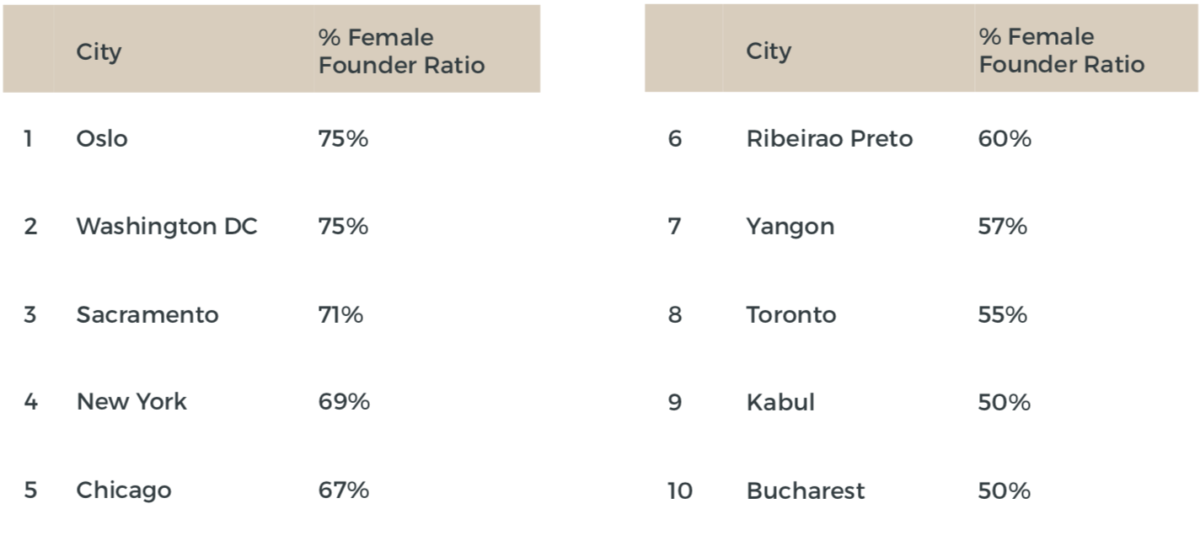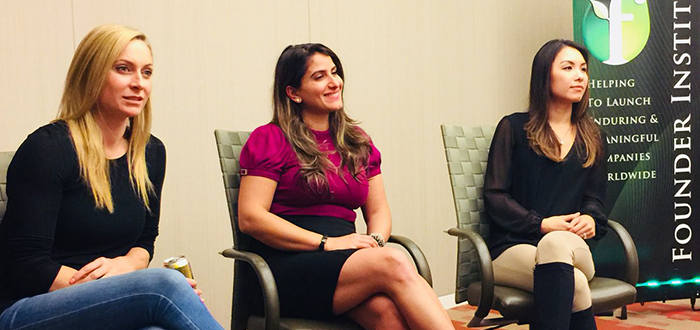Founder Institute (FI), the world’s largest pre-seed entrepreneurial accelerator, aims to have female founders comprise 40% of its annual portfolio companies by the end of this year, according to the accelerator’s Female Founder Initiative Impact Report, released last month.
Started in 2016, the Female Founder Initiative’s (FFI) mission is to significantly change the ratio of female-led companies in FI’s cohorts around the globe. The accelerator currently operates in over 185 cities across 65 countries and has an estimated portfolio value of $20 billion, according to its website.
The initiative’s directors, FI’s Head of Global Admissions Megan Todd and Rachel Sheppard, FI’s Global Marketing Manager, acknowledged that while FI has made a significant impact in the world of entrepreneurialism — helping to launch over 4,000 companies to date — less than 40% of those have been women-led.
“Our goal is to have a lasting impact on global inclusion for women. By 2020, we aim for female-founded companies to comprise 40% of our annual portfolio,” said the directors in their impact report.
More female-led companies could boost the global economy, according to an analysis last year by Boston Consulting Group.
In its report, the authors wrote that, “If women and men participated equally as entrepreneurs, global GDP could rise by approximately 3% to 6%, boosting the global economy by $2.5 trillion to $5 trillion.”
- Rachel Sheppard, Founder Institute
- Megan Todd, Founder Institute
How will FI reach its goal?
For FI, the path toward gender equality in its portfolio companies has been forged through much effort.
Before the Female Founder Initiative began in 2016, about 19% of FI’s portfolio companies were women-led.
By 2018, 31% of their companies globally were female-led and 38% of the companies produced in FI’s top global markets (United States, Canada, and Brazil) were headed by women, according to the report.
The directors shared their methods to boost female enrollment, participation, and graduation in their programs:
- Provide a scholarship for top female applicants to every Founder Institute Chapter across the globe.
- Increase the number of female mentors and local leaders in the Founder Institute programs.
- Host female entrepreneurship-focused events around the world.
- Form partnerships with women-focused organizations all across the globe.
- Improve our program to address the unique problems women face in entrepreneurship.
Hosting events in particular made an impact. According to the directors, “After hosting more than 20 Female Founder focused events worldwide in 2016 and 2017, we saw the number of women-founded portfolio companies from the Founder Institute increase by 50% Year-over-Year from 2016 to 2017.”
However, moving forward, the biggest problem FI and other conscientious startup ecosystem builders face is securing more access to funding for women-led companies.
While the amount of venture capital funding received by female-led startups has been trending upward in recent years, female founded companies received just 2.7% of all VC investment in 2019, according to PitchBook.
FI has mentioned that in 2020, it is adding new resources to help more women founders get in front of VCs.
Which Cities are Leading in Female Entrepreneurship?
The authors of the report also took space to highlight the top cities where FI programs operate for female founders.
Interestingly, major US startup hubs like San Francisco and Austin did not appear on the list, while Kabul, Afghanistan and Ribeirao Preto, Brazil rounded out the top 10 cities with a 50% or higher female-founder ratio.

Credit: Female Founder Initiative Impact Report
The FFI directors encourage startup ecosystem influencers around the globe to take on the challenge of creating more female founded companies.
Some strategies to help achieve this goal that FI is currently implementing within its own ecosystem are: increasing access to funding; increasing collaboration amongst female founders; increasing the visibility of female founder mentors in each community; and increasing the number of female-focused startup founder events.
According to FI, many accelerators measure their diversity level by counting the number of female members they have on their leadership team. But FI is measuring the number of female founders they have in their portfolio of companies.
Disclosure: This article includes a client of an Espacio portfolio company.














